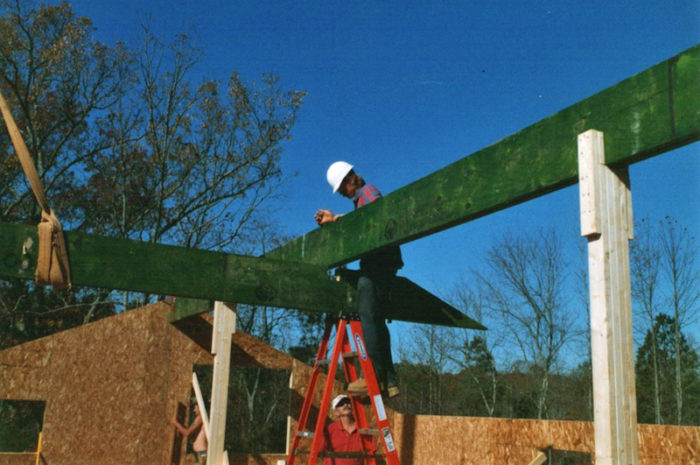
Image Credit: Energy Vanguard
Three questions have been nagging at Rick Chitwood over the past 5 or 6 years. First, why is the HVAC industry in California, where he lives and works, so pathetic?
Second, why have California’s strict energy standards, which have been in effect since 1978, not corrected the problem?
Third, how is it that he, who came to the HVAC business through a nontraditional route, has become a leader in the industry?
The origin of a radical idea
This week at the Forum on Dry Climate Home Performance, Rick gave a short talk on the difference between what the models show and whas actually been achieved, and he concluded by suggesting seven measures which he believes should be required in California. The measures originated from some deep thinking he did upon re-reading Leverage Points: Places to Intervene in a System by Donella Meadows while he was on vacation last year. In that paper, Meadows argues that your best bet at achieving transformation is to change the paradigm. The least effective avenue is through standards and codes.
The best way to create a system that works well, Rick told me, is not to adopt the wrong paradigms in the first place. “That was me. I never learned the conventional HVAC approach. I didn’t learn the bad habits.”
Four steps to transformation
As Rick thought about those nagging questions, he realized that four things needed to happen.
1. We have to pay attention to human nature. People will take the easier path when there are no negative consequences for doing so.
2. Move from energy models to reality. At the Dry Climate Forum this week, “modeling” has been taboo. It’s referred to here as “the M word,” and speakers who talk about it risk not being invited back to the conference. These folks are into measured results.
3. Take the narrative away from the box manufacturers. Most installed HVAC systems perform like crap because HVAC companies follow the lead of the manufacturers, who just push the heating and cooling equipment and ignore the distribution side and commissioning.
4. Train the workforce. A great many of the installers and technicians are woefully undertrained in proper installation of HVAC systems.
Rick Chitwood’s proposed seven mandatory measures
Rick works in California, which has a lot of requirements due to their building code, Title 24. One of those requirements is for HERS raters to do Title 24 compliance inspections and verification, and most builders, according to Rick, would like to eliminate the cost of that third-party verification.
Here’s his seven-step plan to accomplish that objective and, at the same time, transform the construction industry in California.
1. When modeling, downrate HVAC performance 50%. You can get credit for the other 50% by measuring full delivered performance once the system is installed.
2. Post the energy model results where everyone can see them. Energy compliance documentation includes predicted energy use in each category (heating, cooling, domestic hot water, baseload) in dollars (based on site energy use and the current rate structure) and these predictions must be posted on the electrical panel in every new home.
3. Publish energy modeling results and identify stakeholders. Place predictions (numbers from the computer models) for every new home in the registry and list the builder, energy consultant, HVAC contractor, and insulation/air sealing contractor. Make this information public.
4. Assure quality and hold stakeholders accountable. Installers should test the delivered performance of their work on every system and record the results to the registry. Eliminate all HERS verification. Have the California Energy Commission do quality assurance on 1 in 100 systems. If cheating or errors occur every system installed in the last year must be tested — at the contractor’s expense.
5. Register actual disaggregated energy usage for every house every year. Compare actual with predicted.
6. Exempt home builder from Title 24 requirements if builder claims net zero energy and registers the actual performance every year. Registry is public info and home is connected to the builder, energy consultant, HVAC contractor, and insulation/air sealing contractor.
7. Every builder pays the utility bills on every home he builds for the first three years of occupancy.
Imagine home builders paying the energy bills
I think the last of his seven measures has the power to reconstruct the construction industry. It is absolutely brilliant. I don’t know how much of a chance he has of getting this adopted, but wow, what a change it would bring if he’s successful. In California, it really could work because the builders would get some benefits by doing away with the current third-party verification system.
Just imagine how energy efficient new homes would become if builders were on the hook for the first three years of energy bills! It wouldn’t take them long to get all the air sealing, duct sealing, HVAC location, and insulation effectiveness right.
Can this work outside California? Maybe. It may sound onerous to home builders initially because they’d see it as another cost they’re asked to bear. But I think the good ones would jump on it.
In fact, it could even become something that builders do voluntarily as a sales tool. They probably wouldn’t do a full three years in that case, but home buyers would certainly take notice of a home that comes with the first year’s energy bills covered by the builder. It’s really the next logical step from guaranteed energy bills, which some companies offer.
What do you think?
Allison Bailes of Decatur, Georgia, is a speaker, writer, energy consultant, RESNET-certified trainer, and the author of the Energy Vanguard Blog. You can follow him on Twitter at @EnergyVanguard.
Weekly Newsletter
Get building science and energy efficiency advice, plus special offers, in your inbox.





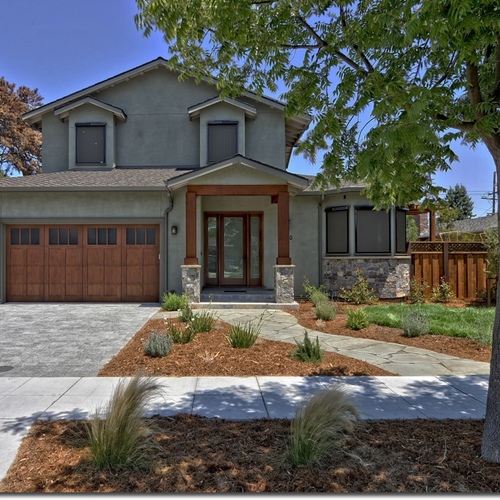
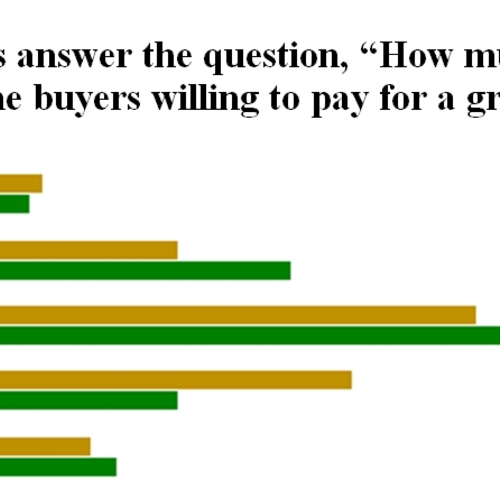
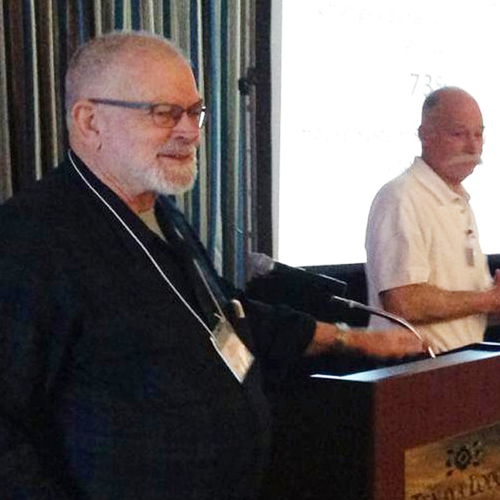
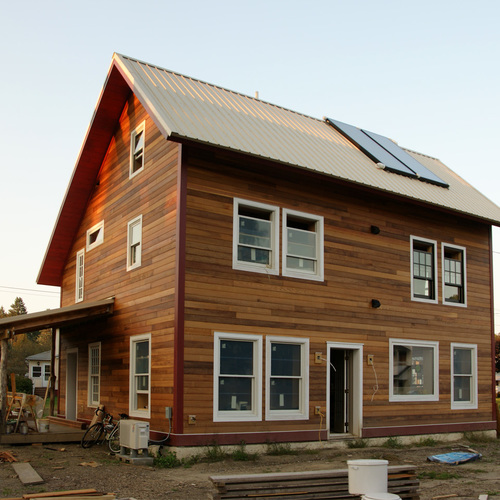






19 Comments
Scarey
As a consumer its very scarey to read that sellers and installers of hvac systems dont know what they are doing. Yikes!
No panacea
Not so sure that forcing builders to pay the energy bills would have much of the intended effect. First of all, perverse incentive - homeowners know they're still really paying for the energy, through the increased sales price on their home. But for them it's just a fixed rate not dependent on volume, like an all-you-can-eat restaurant. And we know those aren't great for our dietary habits. Second, cheap energy costs in the US mean most home energy upgrades take a lot longer than three years to pencil out. Crappy builders will still take the easy way out if they can't see a positive balance.
Still, as a non-obligatory marketing incentive it may have some traction. I remember reading about a developer in Texas doing something very much like this a few years ago. It would be interesting to see how they got on.
Response to James Morgan
James,
If the homeowners don't have to pay their energy bills, guess where they will set the thermostat during cooling season? Why not run the air conditioner all day long, even when everybody is at work and school?
And those three years would be an ideal time to have a "grow" operation in your basement -- you know, one of those enterprises that buys their seeds from the Netherlands.
Response to gideon brontë
Sorry to have to break the news to you, but yes, it's true. The HVAC industry is a mess. The manufacturers play a role in that, with their focus on the box and little to no emphasis on proper distribution. Rebates and incentives that focus on more efficient boxes only make it worse. Home builders who hire HVAC contractors that give the lowest bid ensure low quality. Lack of enforcement of building codes, little to no commissioning, and end users who don't know what good HVAC systems are supposed to do all contribute as well.
There are some good HVAC contractors out there, but they're few and far between and homeowners would have difficulty finding them. One thing you can do is question them on what they include in their services, as I wrote in this article on questions you should ask when replacing your air conditioner.
Clarification request
'merican is my first language, but I don't quite get:
"1. When modeling, downrate HVAC performance 50%. You can get credit for the other 50% by measuring full delivered performance once the system is installed."
What means that exactly, in the 'merican vernacular? Downrate the capacity, efficiency or something else entirely, and how is the crediting on the back side measurement end suppose to work?
Bounds to perverse incentives.
It is easy to point out the ways that builders paying energy bills is fraught with some perverse incentives, nevermind the political ones of getting such a requirement in place.
--Perverse incentives bound by other things
But are they THAT perverse? After all, while there is something actually wasteful about leaving the thermostat at 70 degrees all year long regardless of occupancy. But isn't that exactly what the energy models assume?
I suppose if I didn't pay the energy bills, I wouldn't care that the windows are open while the heat is on. But actually... I probably would. It's really uncomfortable to have the window open during a chilly day even if the heat is on. So, it's not unreasonable to expect that many people would leave the thermostat at 70 deg and not the leave the window open. We can let comfort be their incentive to not be wasteful in that circumstance.
I do take Martin's point to heart though... While I can generalize that people aren't 'bad actors' and like to leave the HVAC on with windows open when they're not at home (and not home to be uncomfortable), I could see that this could be quite possible. Maybe the homeowner has a bad relationship with the builder and really wants revenge. There would have to be some Code of Conduct for the building's occupants, and that's just a non-starter.
--So what about Guaranteed Energy bills with lots of language about conditions and caveats? I think that's been covered by this site before...
--As for my projects/experiences... I'm tending towards just building a really efficient envelope with good ventilation and then letting the primary heating be electric resistance on a timer. I look forward to the day when houses are essentially heated by the 'metabolism' of activities and energy services used within the home and we take the 'H' out of HVAC.
Title 24/IECC exemption
While not explicitly a 'net-zero' energy exemption (which I know Rick would say is not the best way to benchmark performance)
There are already exemptions for high performance in IECC and Title 24
See, for example, IECC Section 101.5.2
Regarding item #7
Regarding item #7:
I think it is an incredibly bad idea that seems to ignore market based economics.
The builder would simply pass that cost on through to the end user. So for the home buyer, he or she would just be pre-paying on a contract for three years of energy through the builder who would be acting as a middleman. The middleman will want to make a profit on that 3-year energy contract.
Ordinarily the 3-year, prepaid buy would deserve a discount, but the builder would have to negotiate such a discount through the utility provider which may not be possible.
Furthermore, because item #7 would be a law, it would add government administrative costs. And since the builder will be paying the energy cost on the basis of a predetermined cost, the builder will want to have control over that cost by controlling the thermostat.
The same cost pass through will also apply to items #1-6. All of this added burden will price people out of the home buyer market. Because all of these costs are based on regulatory compliance, they will fall on all builders equally, and thus the customer will not be able to avoid these added costs by switching to other builders. That means that builders will not be forced to compete with each other in order to lower these costs. On the contrary, they will be free to inflate the costs and profit on them to some extent.
So I think it is a very bad deal for the buyer. And because it will slow down home sales, it will also be a bad deal for the builders.
+1 with Martin's comment
One thing is requiring them to MONITOR the system for a few years to insure it is performing properly, but requiring builders to pay for three years of utilities?
That doesn't do anything to TEACH the homeowner how to use their snazzy new home, even if it's supposed to be net-zero. The requirement also might result in builders discriminating against families they believe might "consume" more energy, just by their family size and type. Sure it's illegal, but it'll happen.
Clearly, the way people use their home is as important as the home itself. Why not design an incentive program to reward both the homeowner and builder together?
Incentive to save
There could be an incentive that if a homeowner kept their energy costs within pre-determined range, a builder could offer a financial incentive after a year. I understand that this adds to the administrative costs but we are talking hypothetically. And there are many smart people that could come up with safeguards for both sides.
As if other trades and most builders are any better ..
Locally, probably 1 ou of 10 builders or contractors know and care . Others are in solely for $$$
and will do anything to get more.
How does one with the wrong set of values handle this kind of business ?? Obviously not the way we would like it.
So just a quick thaught, why not educate your HVAC/Builders ???
Home studies, short classes tested with exams and or practical tests for all boss and workers.
And then as suggested evalute 1 out of X installation etc..
I also do not believe that having the builder pay the first 3 years of energy would be a wise law.
Unfortunately, when you are
Unfortunately, when you are talking big $$ there will be no safeguards.
Everyhting that is encrypted and worth it gets decrypted, every software worthwhile gets cracked.
If you want business to follow a certain standard you need to apply it with force.
License to operate buisness requires to pass installation tests and educated workers. with periodical testing/updates .
Mandatory is the word i was lookin for.
confused
If California wants to improve their HVAC performance, they will write it into their local building codes. Compliance to standards and procedures should be verified by a third party, or the local building inspector.
Response from a Builder
Interesting ideas, but there are some flaws in thinking. If we as builders are mandated to pay for the heating/cooling bills for 3-years, we simply have to calculate what the cost would be for 3-years if all systems were running 24/7 and then add that to the consumer cost of the homes we build. If all builders are under the same mandate, then we will all come up with the same calculations and the playing field is leveled. If the consumers don't use the systems 24/7, we'll we get more profit. Consumers lose.
The other option for us as builders is to build to Passive House standards and then we only have to put in very small HVAC systems. If those small systems run 24/7 the cost won't be so much for us if we have to pay the heating/cooling bills for 3-years. In California, that should be fairly easy to accomplish (we won't have to go far beyond current code to achieve it) and so it shouldn't add too much to cost. But if an architect designs a home that is 80% glazing, we can't do anything about that. Wait a minute, we'll be on the hook again for what an architect comes up with! Maybe it's the architects who should be designing energy efficient homes and they who should be paying for the bills for 3-years!?
I personally think it's crazy that in California we spend money on large HVAC systems, especially "energy efficient" systems, when we should be designing/building thermally efficient envelopes instead. What's the sense of putting a Prius engine in a 1978 Lincoln Town Car?
3 year bill pay
Another potential side effect would be if the builder oversized the PV system or wind turbine system to the point he could get a refund check each month from the electric company and not have to pay in at all. Forget aesthetics, we're putting in a huge roof with solar panels and filling the back yard with them too (and the hoa agreenent prohibits their removal).
This gets ugly though when the home owner decides to run a grow operation, or a data center startup out of the garage/basement. I see a whole new use of airbnb. Come use my electric hookup to run your cloud computing storage site/laundromat/tanning salon!
Questions from a builder
Who designs these houses builders are building?
Where do home owner's and architect's values lie in home design?
How often is the contractor held liable for building scientist recommendations not thoroughly field tested?
Like other have said it will
Like other have said it will just be a cost plus scenario. It seems like it could drive up the prices with little benefit.
Once upon a time smoking and drinking and driving were not look at as problems. People realized the negative affect. The public was educated and the shift in public perception has changed on how drinking and driving and smoking are viewed today. The regulation followed public demand.
I think if you want change you need people to understand that we cant build homes the same way. The consumer has to perceive value in better homes.
One of the stumbling blocks is that people have not been in homes that are efficient. They dont understand that they are quieter. That the air can be better. That the mean radiant temperature will be more conducive to comfort.
We also have to get away from a payback period. People need to understand that there will be energy savings every month and that the home will resale for more and probably quicker.
Absurd blog
This blog's waste of resources should be paid back.
Alternate Ideas to Promote Transparency
To the first comment from Gideon, I wish more consumers were reading this blog. It would make it easier for good builders and good HVAC contractors to compete.
The unintended consequences of a program that had the builders paying the bills would surprise even the best of us who are looking into a crystal ball to see the future.
What I propose is transparency. If there were some sort of reporting program where builders could opt-in, the actual energy use of the homes they build would be reported for three to five years. As the history of the energy consumed would be reported to the public in statistical form, several things would happen. The builders would embark on a homeowner education program that encouraged conservation and thrift. Over the long haul the averages of all the data would tend to indicate which builders built their homes well and had well engineered and installed systems in them.
The utilities will play a role in this by aggregating more useful data about home size, construction age, and home occupancy that would highlight for users where they stand in comparison to their neighbors or a potential new home they might consider buying or renting. If you live in an average home that is 20 years old, it might be nice to learn what average new homes are costing in energy usage. We also need to understand what average older homes are costing based on size, locale, and occupancy. Not just national averages, or utility company averages. This may actually drive sales to new home builders and encourage deep retrofits for existing home owners who want to raise the market value of their homes. New home builders need an incentive to join the evolution of modern design and construction. They need to make fundamental improvements to their homebuilding practices rather than greenwashing their old habits with new labels.
Log in or create an account to post a comment.
Sign up Log in